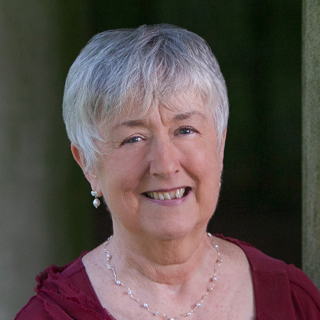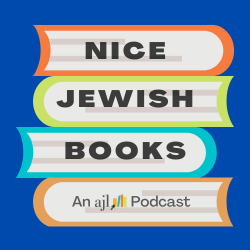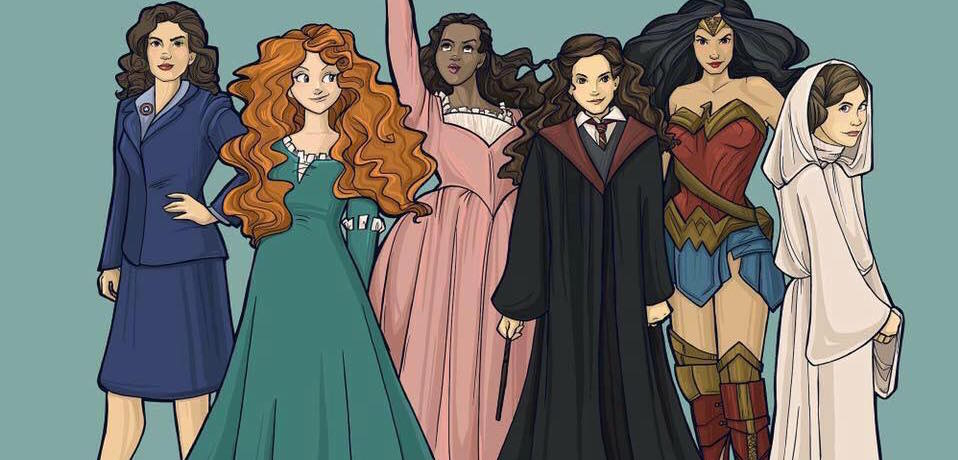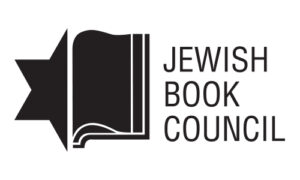A few weeks ago, as you know, I decided to launch this blog. As an indie author it is imperative to market and promote your work and to remain in the public eye. But maintaining a blog is time-consuming and takes a toll on the limited brain cells (and creative juices) I have left remaining after a 10-hour workday. Just writing about my books wasn’t going to cut it; and to be honest, the blog would certainly not keep anyone’s attention for long. By inviting other authors to share their work, I hope to shed light on this genre of Jewish Historical Fiction. Its diversity and educational significance, as well as its entertainment value is sure to please. Having said that, I couldn’t be happier to present today’s guest.

Caroline Warfield is an award-winning author of family-centered romance set in the Regency and Victorian eras. She has been many things, but above all she is a romantic. She began life as an army brat who developed a wide view of life and a love for travel. Now settled in the urban wilds of eastern Pennsylvania, she reckons she is on at least her third act.
When she isn’t off seeking adventures with her Beloved or her grandson down the block, Caroline works happily in an office surrounded by windows where she lets her characters lead her to even more adventures in England and the far-flung corners of the British Empire. She nudges them to explore the riskiest territory of all, the human heart, because love is worth the risk.
Host: Caroline, you will forgive me, but I’m a little star struck. I’ve read your work and appreciate your standing in the Regency world. It goes without saying, I pretty much loved everything about your book, An Open Heart. There was a certain lightness to it, similar to any other Regency romance, but there was no denying the substantive material in the narrative. I was bursting with pride when the storyline touched upon the contributions and achievements of Anglo-Jews, but I believe my favorite scene had to be the impromptu Shabbat service held in the Duchess of Haverford’s drawing room. What motivated you to write this book?
Guest: I belong to The Bluestocking Belles, an authors’ support group and marketing co-op. We do an anthology or a “boxed set” every year, often with loosely connected stories. The year I wrote this we had a house party theme. The Duchess of Haverford invited young women who worked with her on charity projects to sponsor a holiday ball for charity. We all added characters to her committee. Jewish characters popped into my head that year; stories sometimes happen that way. Esther, a wealthy, but not aristocratic, young lady was part of the planning committee from the beginning. An Open Heart is a standalone book, but there are minor characters who appear in the other stories, and Esther and Adam appear in some of the others. The collection as a whole was called Holly and Hopeful Hearts.
As an aside, we’re a multi-faith family. While Beloved and I are Catholic, we often celebrate with our daughter and her family who are Jewish. Our grandson celebrated his bar mitzvah last year.
Host: Mazal tov to the Bar Mitzvah and to the whole meshpucha! I love the name, “Bluestocking Belles.” Sounds like my kind of group. But my goodness! A boxed set every year? Tell us, why do you think we are so fascinated with this particular time period?
Guest: The Regency era is a mythical Romantic era. I say that because of the sheer volume of stories classified as “regency.” They don’t always necessarily reflect history. I like to hope mine do.
Host: I, for one, can attest to the historical content of your work. In fact, I am striving to achieve that educational and enlightening component myself! Jewish Historical Fiction is an important, stand-alone, genre in my view. What are your thoughts?
Guest: Good question! I’m not entirely sure I’m qualified to answer that. Insofar as it contributes to the body of truth about history—emphatically yes. My own concern is that the historical romance genre in general realistically portray the diversity of previous eras. Realism matters, and, frankly, all that white bread story telling gets boring.
Host: Since we are speaking of weaving accurate historical events into our storylines, tell us about your research. Were you surprised by your findings?
Guest: I was struck by the efforts of the Jewish community of London to make certain their sons had access to high quality education. They were less concerned about educating their daughters, a blind spot they shared with the rest of England, one my heroine complains about vociferously. Women’s education has always been a passion with me. Several of my books touch on it.
Host: Ah—I think I may know the answer to my next question. Which of your characters resonate with you most?
Guest: Actually, Adam does. His struggle to maintain his identity, his faith, and his attachment to tradition while working in the larger culture was something I relate to strongly. My daughter once told her rabbi that her mother can’t have too much tradition, and she was right. We best appreciate the traditions of others when we cherish our own. The richness of sharing is dear to me.
Host: I would have thought you’d choose Esther; but having read your response, I can clearly see why you went with Adam. To be honest, either character would have been a great pick! Here’s another question along those same lines. Do you have a favorite scene in the book?
Guest: I love the scene in which Adam arrives at the home of his former teacher, Rebbe Benyamin Nahmany, “the finest Talmudic scholar in Europe,” who lives in a house nestled on the French side of the Pyrenees with his large family. Adam and an English officer are on a mission to bring funds to Wellington and the family is helping them. He realizes with surprise that he has forgotten Chanukah (which after all was a minor feast) when he sees the mother lighting five candles. He enjoys the warmth of the family’s celebration, and I love that he gets his comeuppance by the scholarly learning of one of the daughters. Afterward he is forced to rethink many of his assumptions.
Host: Yes! That was a great turning point in the story and your research served you well. Tell us, are you working on something now?
Guest: I’ve reached the point of projects accumulating in my mind faster than I can write them. I’m working on two new series at the same time. One is set in a small village in England and centers on two interrelated families. It has less of that diversity I value, but a lot of strong family ties, which are also important to me. The first book The Wayward Son will be launched in July.
At the same time, I’ve been working on a new series that continues my Children of Empire series. The hero is an English archaeologist working in Egypt and Nubia. The heroine is a French woman who is also a hakima, a medical professional trained to treat women, more of a nurse practitioner than a midwife. It is heavy on history and has a very diverse cast of characters, including Muslim colleagues of the main characters. That will be published by a different publisher, also in July. It is called The Price of Glory.
Host: I’m in awe, Caroline. I can’t imagine undertaking two projects at once. I currently have a Work-in-Progress that started off with a bang, but now is competing with everyday life and a million other distractions and commitments. Which brings me to my closing point. I appreciate your time and thank you once again for your participation today. I’m delighted you’re sharing an excerpt and your social media links with the audience.
Guest: Thank you for inviting me, Mirta. A last note: I will happily send an eBook copy of An Open Heart to one person (randomly selected) who comments.
An excerpt from An Open Heart:
“—I don’t understand how your father could send you to that school. Your parents are entirely too secular in their outlook. The Talmud suggests—”
“I wouldn’t know what your precious books suggest. I’m excluded from that kind of learning.” There. She had given voice to her greatest resentment. Let him make what he would out of that.
“Your Mother—”
“Leave my mother out of this. My mother taught me what I need to know about Shabbat and the holy days. And who are you to criticize?”
Adam colored, red blotches staining his cheeks. “Of course, I have no right. I had hoped before I left—”
Esther felt light-headed for a moment. Had he spoken to Papa? Breath rushed back into her lungs, but she raised her chin. “What is it you hoped, Mr. Halevy?”
Adam’s eyes softened, and Ether found herself leaning slightly toward him. A moment later, he stiffened and took a step back.
“My wife will respect our traditions and keep a traditional home,” he announced.
“I wish you luck finding such a paragon, Mr. Halevy,” Esther responded, pulling herself up as tall as she could. “My home will respect tradition and the people we meet.” When he simply glared at her outburst, she went on, “And my daughters will know as much about our faith as you do!”
“Good luck to you in that endeavor, Miss Bauman,” he said with a jerky nod. He tapped his hat on his head with more force than needed.
When he stepped out the door, Esther couldn’t control the urge to dart out after him. “Adam—Mr. Halevy—wait!”
His frown looked more puzzled than angry when he turned to her.
“Where you’re going—it will be dangerous.” Her lack of breath made the words sound uneven.
Adam nodded.
“I—” The expression on his face stopped her before she could continue. “I’ll pray for you,” she finished at last, “and the success of your journey, of course.”
A sad smile transformed his face. “I would be grateful for your prayers, Miss Baumann.”
Website http://www.carolinewarfield.com/
Amazon Author http://www.amazon.com/Caroline-Warfield/e/B00N9PZZZS/
Good Reads http://bit.ly/1C5blTm
Facebook https://www.facebook.com/groups/WarfieldFellowTravelers
Twitter https://twitter.com/CaroWarfield
Email warfieldcaro@gmail.com
Newsletter: http://www.carolinewarfield.com/newsletter/
BookBub https://www.bookbub.com/authors/caroline-warfield
You Tube: https://www.youtube.com/channel/UCycyfKdNnZlueqo8MlgWyWQ





Thank you so much, Mirta, for your invitation and thoughtful questions.
It was my pleasure! Best wishes for a healthy, happy holiday season!
Fascinating! In this last year I read “The Weight of Ink” by Rachel Kadish. It was a fascinating read, especially since during a portion of the book there’s the plague pandemic in the background. I was reminded as there is an Halevy and an Esther in that book, also.
I’m so glad you enjoyed the interview, Joanie! Thank you for sharing your thoughts.
I was not aware of Caroline Warfield’s work. I love books with Jewish characters. I will definitely add these novels to my reading list. Thanks for sharing interesting authors of Jewish Historical Fiction.
I am delighted to share my suggested reading list with you. Thanks so much for your comment, Carolynn.
That was awesome! And I am already in love Caroline’s books.
Yes! Caroline is a power house and was a great inspiration to me as an author of Jewish Historical Fiction. Thank you for stopping by, Jena.